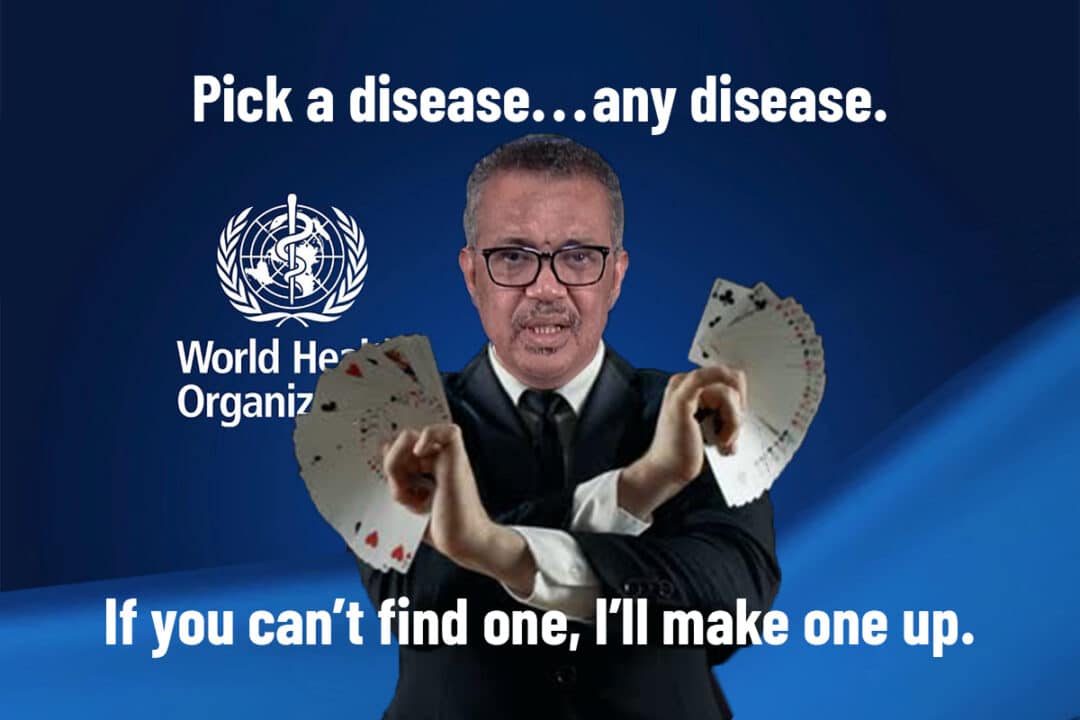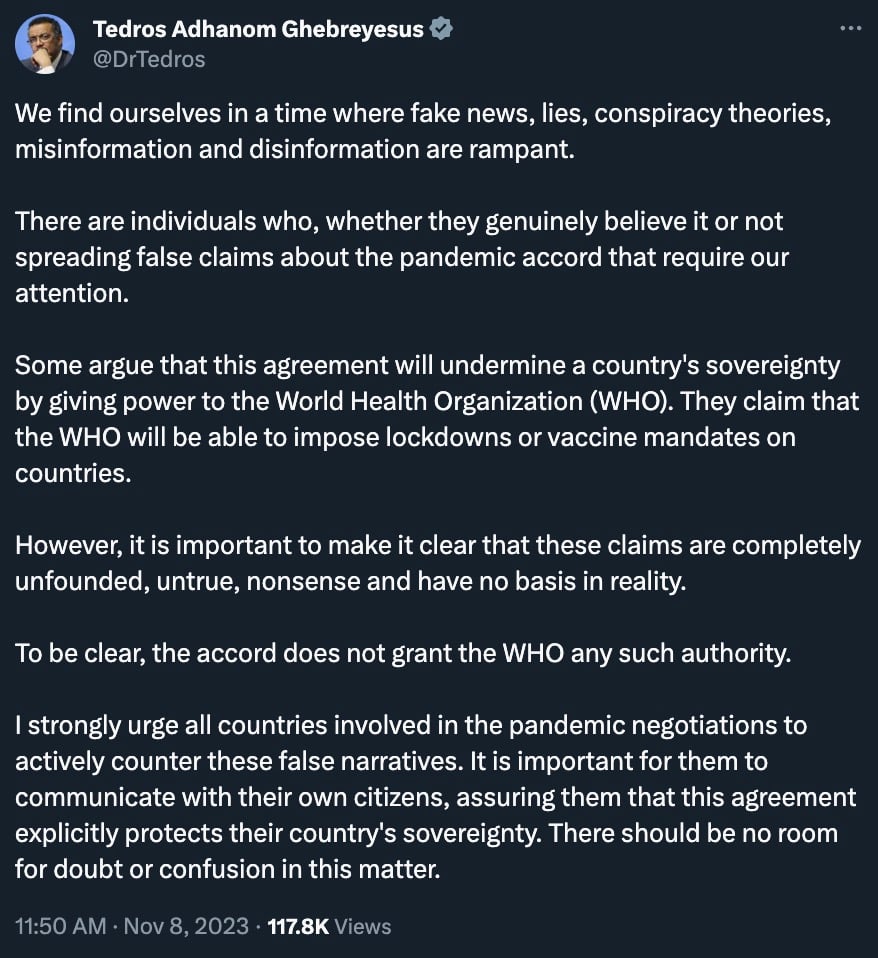Subscribe to Zero-Sum Pfear & Loathing



Given the fervor of Tedros Adhanom Ghebreyesus’ crusade against “disinformation,” if one didn’t know any better, one could hardly guess that he is at the helm of UN’s health agency, the World Health Organization (WHO), rather than some “ministry of truth.”
Then again, given his own, and WHO’s role in the disastrously mishandled pandemic – when those who were to blame at national and international level discovered “misinformation” as a way to discredit any criticism – this is not so surprising.
Now Tedros writes, “We find ourselves in a time where fake news, lies, conspiracy theories, misinformation and disinformation are rampant.” The reason this time is the UN’s push to get countries around the world to agree to “the pandemic accord.”

The document is designed to put in place the tools to handle “the next pandemic,” but is far from limited to health issues.
Opponents have been warning that the accord also aims to introduce surveillance tools, effectively facilitate censorship, and undermine a country’s sovereignty in the decision-making processes during a health crisis by transferring a number of powers to the UN.
This last serious concern seems to rub Tedros particularly the wrong way.
There are many more aspects to losing national sovereignty than overt ones such as direct imposition of vaccination or lockdowns, but in his post Tedros chose to focus on that, to then blast critics as making claims that are “completely unfounded, untrue, nonsense and have no basis in reality.”
The WHO director-general doth protest too much, some might conclude.
Such language doesn’t just come out of nowhere; it is usually a signal that not everything is going smoothly behind the scenes, and here Tedros seems to be trying to not only persuade countries about “fake news, lies, conspiracy theories…” around this issue, but also to get them to launch propaganda campaigns in favor of the accord, ASAP.
Tedros calls this, “actively countering false narratives.”
“It is important for them to communicate with their own citizens, assuring them that this agreement explicitly protects their country’s sovereignty. There should be no room for doubt or confusion in this matter,” he wrote on X.
A post – or a whole study – explaining how exactly the proposed treaty “explicitly protects” national sovereignty would be even better as a way to leave “no room for doubt or confusion.”
That’s lacking, but efforts to promote WHO’s narratives are only increasing. Thus, Spark Street Advisors is lobbying by proposing “soft (reputational) incentives such as technical and material resources to help countries (with compliance).
Most international agreements leave it to nations to “self-report” on implementation, but here the recommendation is for the accord to set up “an independent monitoring committee, tasked with producing regular assessments of state parties’ compliance with the pandemic agreement and the timeliness, completeness and accuracy of self-reporting.”
Not sovereignty-undermining, this. Not at all. /s